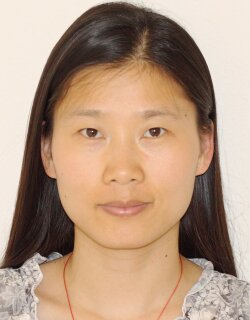Department of Neuropsychology
Institute of Cognitive Neuroscience
Faculty of Psychology
Ruhr University Bochum
Universitätsstr. 150
44801 Bochum
Room:
IB 6/53
Phone:
+49 (0)234 32-23174
Email:
hui.zhang-c5u@ruhr-uni-bochum.de

I am interested in many aspects of memory, especially spatial and episodic memory. My research includes topics as how we update in our environment, how we represent the complicated out world into a whole and the brain mechanisms underlie, neural foundations of successful retrieval of previous learned stimuli, and how we consolidate our memory during sleeping time. I use intracranial EEG (ECoG), fMRI, simultaneous EEG/fMRI, and behavioral study methods to address on these issues.
Zhang, H. (2023). Chapter 44 - How can I conduct surrogate analyses, and how should I shuffle? In: N. Axmacher (Ed.), Intracranial EEG for Cognitive Neuroscience. Springer. https://doi.org/10.1007/978-3-319-45066-7_15
Liu, J., Zhang, H., Yu, T., Ren, L., Ni, D., Yang, Q., Lu, B., Zhang, L., Axmacher, N. & Xue, G. (2021). Transformative neural representations support long-term episodic memory. Science Advances, 7(41). https://doi.org/10.1126/sciadv.abg9715
Liu, J., Zhang, H., Yu, T., Ni, D., Ren, L., Yang, Q., Lu, B., Wang, D., Heinen, R., Axmacher, N. & Xue, G. (2020). Stable maintenance of multiple representational formats in human visual short-term memory. Proceedings of the National Academy of Sciences of the United States of America, 117(51), 32329–32339. https://doi.org/10.1073/pnas.2006752117
Zhang, H., Fell, J. & Axmacher, N. (2018). Electrophysiological mechanisms of human memory consolidation. Nature Communications, 9(1). https://doi.org/10.1038/s41467-018-06553-y
Zhang, H., Deuker, L., Axmacher, N. (2017). Replay in Humans—First Evidence and Open Questions. In: N. Axmacher & B. Rasch (Eds.), Cognitive Neuroscience of Memory Consolidation. Studies in Neuroscience, Psychology and Behavioral Economics. Springer, Cham. https://doi.org/10.1007/978-3-319-45066-7_15
Zhang, H., Fell, J., Staresina, B. P., Weber, B., Elger, C. E. & Axmacher, N. (2015). Gamma Power Reductions Accompany Stimulus-Specific Representations of Dynamic Events. Current Biology, 25(5), 635–640. https://doi.org/10.1016/j.cub.2015.01.011
Zhang, H., Zherdeva, K. & Ekstrom, A. D. (2014). Different “routes” to a cognitive map: dissociable forms of spatial knowledge derived from route and cartographic map learning. Memory & Cognition, 42(7), 1106–1117. https://doi.org/10.3758/s13421-014-0418-x
Zhang, H., Mou, W., McNamara, T. P. & Wang, L. (2014). Connecting spatial memories of two nested spaces. Journal of Experimental Psychology: Learning, Memory and Cognition, 40(1), 191–202. https://doi.org/10.1037/a0033776
Zhang, H. & Ekstrom, A. D. (2013). Human neural systems underlying rigid and flexible forms of allocentric spatial representation. Human Brain Mapping, 34(5), 1070–1087. https://doi.org/10.1002/hbm.21494
Zhang, H., Mou, W. & McNamara, T. P. (2011). Spatial updating according to a fixed reference direction of a briefly viewed layout. Cognition, 119(3), 419–429. https://doi.org/10.1016/j.cognition.2011.02.006